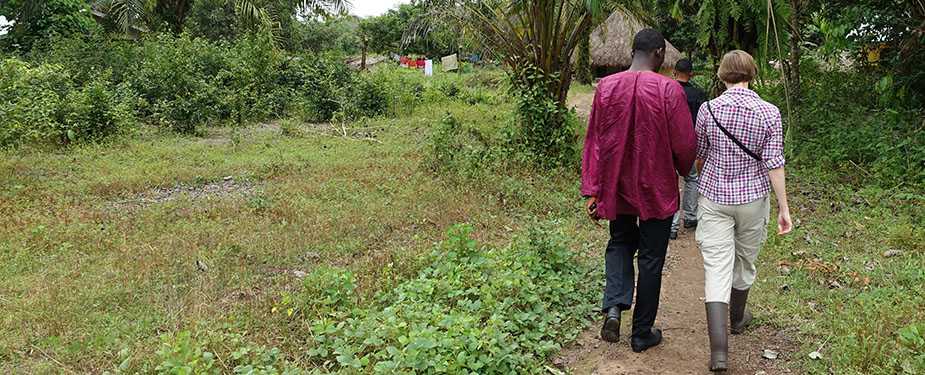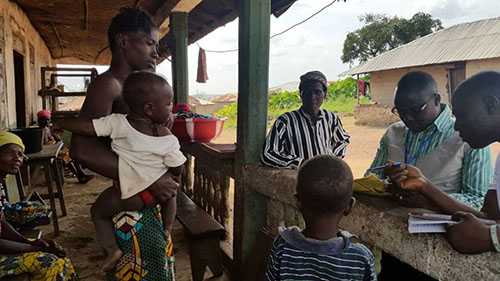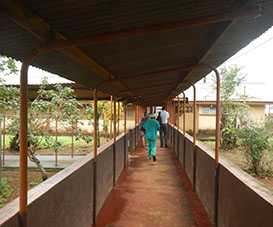Data Inspires Lifesaving Action In Sierra Leone

Disease detectives use data to track down cases of Lassa fever and prevent the spread of the virus in Sierra Leone.
Lassa Fever Affects the Vulnerable

In Sierra Leone’s Kenema district, an FETP trainee analyzed surveillance data from 2016 and found high rates of Lassa fever in three chiefdoms. Even more concerning, he discovered that women and children under the age of five were most affected and suffered a much higher case fatality rate: 50-100% higher than expected. The Kenema District Health Management Team is now building a robust Lassa fever database and working with the Ministry of Health and Sanitation to review the current Lassa fever case definition to make it more sensitive. Capturing cases of Lassa fever early helps protect everyone – including women and children – from this deadly disease.
Addressing Gaps After Ebola
When Ebola struck Sierra Leone, focus shifted to fighting the deadly epidemic, stretching the country’s already limited resources even further. As can happen when health systems are overwhelmed by an emergency, the country’s collection and analysis of data on acute flaccid paralysis (AFP), one of the main indicators for polio, was severely impacted. An FETP trainee analyzed national AFP data to identify gaps in surveillance and discovered that the key indicators were not being met. Steps are now in place to routinely evaluate reporting against national indicators to identify potential patients with AFP and help keep the country polio-free.

Tuberculosis Data Sparks Change
When analyzing tuberculosis (TB) data collected from 2012-2016 at the Sierra Leone Correctional Center, one FETP trainee discovered that 61% of the inmate population they tested had the disease. Prison authorities took this new information and made changes: the court system was encouraged to speed up trials to minimize overcrowding; a TB clinic was established, including a separate block for infected inmates; and social distancing was maintained in the facility to prevent the spread of the disease.
Related Links
- Page last reviewed: August 7, 2017
- Page last updated: August 7, 2017
- Content source:


 ShareCompartir
ShareCompartir